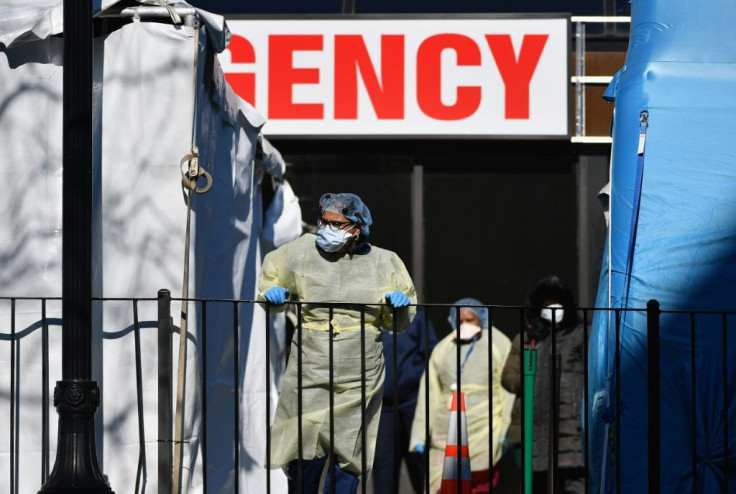Could Hospitals Close Because Of Coronavirus? US Healthcare May Face Financial Crisis In Aftermath

KEY POINTS
- 125 rural hospitals have closed their doors since 2010
- Hospitals get a large chunk of revenue from elective surgeries, which have been canceled in the face of the pandemic
- The $2.2 billion CARES Act allocated $130 billion for hospitals
The COVID-19 pandemic is putting significant financial pressures on hospitals as profitable elective surgeries get canceled to prevent the spread of infection and free up beds for patients felled by the pandemic. The result could be destabilization of the healthcare system for the foreseeable future.
Becker’s Hospital Review reports credit rating agencies have issued negative outlooks for both for-profit and nonprofit hospitals just as payrolls are being squeezed by mushrooming overtime costs and higher prices for supplies.
Hospitals in rural areas already were facing financial challenges forcing many to scale back services and others to close – 125 since 2010.
"If we're not able to address the short-term cash needs of rural hospitals, we're going to see hundreds of rural hospitals close before this crisis ends," Alan Morgan, head of the National Rural Health Association, told Kaiser Health News.
“This virus, and what it is causing for these hospitals, is the perfect storm that will close these hospitals at a time this country critically needs them,” Robin Rau, CEO of Miller County Hospital in southwestern Georgia, told Kaiser. “This is going to be the death blow to them.”
David Bowen, chief officer for policy and public affairs at WPP Health and Wellness, said there’s no way to really predict the pandemic’s impact.
"Like all else, medical care will be transformed by the pandemic. The Cassandras who sounded the alarm about our lack of preparedness, lack of hospital surge capacity, and inadequacy of planning may at last be heard -- too late for this pandemic, but let's hope, in time for the next, or for the potentially repeating waves of COVID-19,” he told IBTimes.
Douglas Grimm, co-leader of Arent Fox LLP's Healthcare Practice, said the loss of elective surgeries is a particularly sharp blow to hospital finances.
“These surgeries often provide higher levels of reimbursement than for patients presenting with non-surgical diagnoses such as COVID-19,” he said, adding, it’s too early to tell whether this financial pressure on the healthcare system will have specific marketplace effects such as mergers or acquisitions of physician practices or hospitals. But these significant financial changes will undoubtedly have some form of destabilization for the foreseeable future."
Attorney and registered nurse Sandra DiVarco of McDermott Will & Emery called the coronavirus pandemic an unprecedented challenge to the healthcare system.
“The total financial impact of the staffing costs, supply and equipment costs, facility and infrastructure development costs that have arisen is difficult to quantify now but could stress even the most financially secure health care system. In some cases, hospitals are being asked to set up and staff alternative health care locations, add beds and provide services in the community, essentially expanding their footprint almost overnight,” DiVarco said.
The $2.2 trillion CARES Act signed into law Friday provides $130 billion for hospitals, including $27 billion for medical supplies; funds to cover the costs of coronavirus tests and future treatments and vaccines; an increase in payments to hospitals, doctors, nursing homes and home health by 2% for the rest of the year, and a 20% increase in payments to hospitals treating elderly COVID-19 patients.
Some $100 billion has been allocated for hospitals and providers who take on coronavirus expenses and $250 million has been set aside for hospital preparedness grants.
© Copyright IBTimes 2025. All rights reserved.






















